Presentation interviews are becoming common, especially for business and management roles. The good news is, if the company asks you to make a presentation, they are somewhat serious about you. The bad news is they seem to be asking a lot.
They may ask you to design a kick-ass product, make a go-to-market plan for six countries, think of a strategy to win over the market like a landslide, or analyze a company’s finance to decide on a $2Bn investment deal – all these before the next round of interview.
This article for you if you find yourself still hardly know who’s who in their industry. You are doing a full-time job, managing a team of 5, and handling two young children at home. You may start to panic, plan to stay up all night to research, and call up everyone you know in the industry. Yet, you may feel desperate because you really are shorthanded for such a project.
Nobody has enough time for such a project. Remember companies invest multiple months in such projects, often with a selected task force, sometimes expensive McKinsey consultants. Remember, this is not a project but an interview presentation. You have limited resources and time. You have limited expertise – even if you have worked in the same industry as them, you know little about the company.
You got to be smart about it.
Align on Timeline and Expectation with the Hiring Company
It is completely fine to ask for more time. One week is a reasonable time, but if you are extremely busy at work or in life, ask for more time.
You can ask for more time by giving options: A. I would need about two weeks to do a proper job. B. If you are time-pressed, I can get it done within one week but really simple. Which would you prefer?
The hiring company may choose option B and tell you “no need to do a lot, just show your thought process.” And that is fine too, as long as you have aligned on the timeline and their expectation of your work.
Align on Timeline and Expectations with Yourself
Make a decision on what you will do, and what you will not. Highlight the core elements that are important for your case. Drop the elements that are random or at a detailed level.
Find out whether you get to present your slides
If so, keep the slides lean because it will only be a visual aid. If not, you need to make it more informative and self-explanatory.
You will also want to know your audience’s function and seniority. Your content should speak to your audience.
Research the Company before Industry
You may feel the impulse to start market research immediately, especially if your lack of market knowledge unsettles you.
Don’t.
By diving into market research at the start, we can easily get lost in the ocean of information. Remember, our time and resources are limited, and we have to ration it carefully. The market is too big to be meaningful without a perspective. And the only perspective matters here is the company’s lens.
Therefore, research the company first. Read up their website to understand how they relate to their customers (segmentation, value proposition, competitive advantage), employees (culture, principles), and the world (the problems they solve, the vision they set out to build).
Below is my highly rated step-by-step guide on researching any company before interview, with ByteDance as an example.
https://youtu.be/0O87sc80ZfA
Use the Company’s Lens
With this lens, you can now research the market with the company in mind. Which part of the market matters to it? What does a trend in this particular market mean to it? What does recent news on a competitor or a partner mean?
Whatever the presentation is about, you should already imagine yourself as an employee in the company. Everything you analyze should be in the company’s interest and aligned with its vision.
Of course, you can’t possibly know the company well enough before joining them. And that is fine. Just state whatever assumptions you make.
Outline Your Thought Process
The purpose of a presentation is not to get free strategy consultation from a candidate like you but to understand your thought process.
Don’t let unnecessary details bury your structure. The structure is always essential in any presentation but especially important in a hypothetical assignment.
Outline your internal links of logic: e.g., according to A, I believe B, and therefore C. With the assumption D, I am arriving at E. With clarity in the flow, you get to deliver your core message convincingly.
Outlining first also helps you to be efficient. You will not have time to fill in every detail. Stay close to the structure and only add details when necessary.
Showcase your expertise
You can research the company and the industry all you can – still, you won’t know more than the interviewers. And as long as you seem to understand the basics, the important, and the obvious, they will excuse your ignorance.
Your interviewers are more interested in what you do know, not what you don’t. Show them how you bring transferable skills and expertise. For example, if you are a sales leader from a different domain, can you showcase your sales methodology? Or, if you are from a supply chain background and the company is targeting that segment, can you display how your deep knowledge helps them tackle the market?
Put it all together
Once you aligned expectations with the hiring company, examined the market through their lens, outlined your thought process, highlighted your value-add, you want to give it a final touch.
The mere-exposure effect suggests that people like what they are familiar with. We can’t use the hiring Company’s corporate template for our presentation, but it’s a good idea to follow their corporate color palette. Their website is usually the best source.
Be comfortable with not knowing
Don’t be nervous about what you don’t know. Be brave, honest, and confident in acknowledging everything you don’t know or are unsure about. It’s nothing to be ashamed of. As long as you know the basics, the important, and the obvious, you are in a good place. Focus on your thought process and value-add. Be ready to have a conversation – after all, the interviewers also don’t have a final answer, and they know no more than you about right and wrong.


